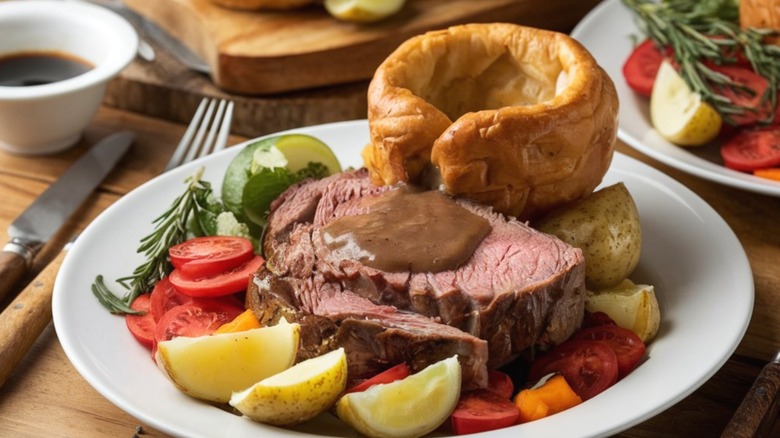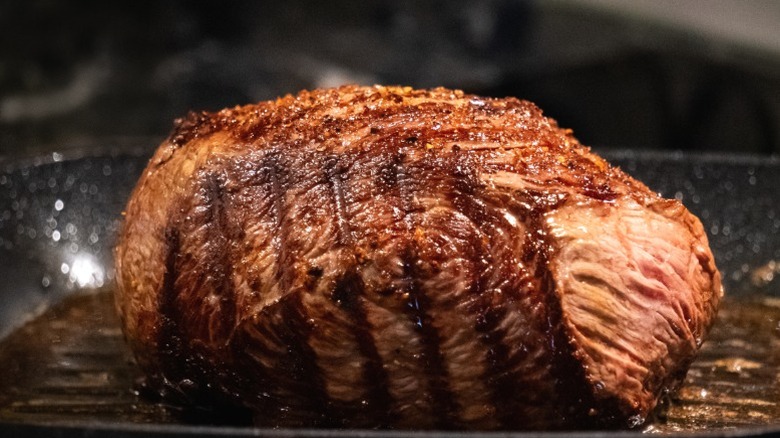Here's What You Need To Make A Sunday Roast Like The Brits
I spent close to a year living in the United Kingdom — specifically Scotland — to get a master's degree, and whenever I talked to people back home about it they would always ask me "How's the food?" in much the same way you might ask someone who's eating a spider, "How's the spider?" I guess they wanted me to tell them horror stories about haggis or beans on toast, but I would always disappoint them. For one thing, American cultural hegemony being what it is, the diet of the average Brit doesn't look terribly different from the diet of the average American; The busiest restaurant in the city I stayed in was, invariably, McDonald's. For another thing, a lot of the food considered to be quintessentially British was pretty delightful. Who could possibly consider themselves above curry, or fish and chips, or a good Sunday roast?
An English Sunday roast, as the name implies, is generally eaten on a Sunday. It consists primarily of some kind of roasted meat — usually beef — although my past Sunday roasts have included a leg of lamb and a whole chicken. There are vegetables, too, which can include carrots, parsnips, Brussels sprouts, or anything else you might crave — along with roasted or mashed potatoes. You'll also find Yorkshire puddings, which are analogous to biscuits in an American roast dinner and have a handy divot to serve as a meat and gravy receptacle. Then, of course, you can't forget thick, brown, and unctuous gravy. I tried to enjoy as many roasts as I possibly could while I was in the U.K., even though I could never quite get the Yorkshire puddings right and had to buy them frozen from Tesco. (Even in the freezer section, the proof is in the pudding.)
The Sunday roast's 15th-century roots
In the 15th century, back in the day of Henry VII (not Henry VIII, his more famous successor with the six wives), the king's royal guards would supposedly get together and eat lovely roast beef dinners. This is commonly cited as the etymology for the nickname "Beefeaters" — used in reference to the guards of the Tower of London to this day — but there isn't really a consensus as to the true origin of the term. (It also led to the familiar branding behind the popular Beefeater London gin in the 1800s.)
In any case, the common people of the era couldn't afford to eat beef every day, and they definitely didn't have a giant fireplace with a big, fancy spit. So they made do with what they had — whether that was beef, lamb, or chicken — cooking it in their own, smaller fireplaces or the borrowed ovens of local bakeries which didn't bake bread on Sundays. By the late 1700s, when the Industrial Revolution kicked in, more British families could afford larger dinners, often cooking them in their own ovens on Sundays when everyone was away at church. (This was long before they were able to cook a roast in a Crock Pot.) Today, even though Britain is far less religious than it was in the past, the Sunday roast tradition remains.

